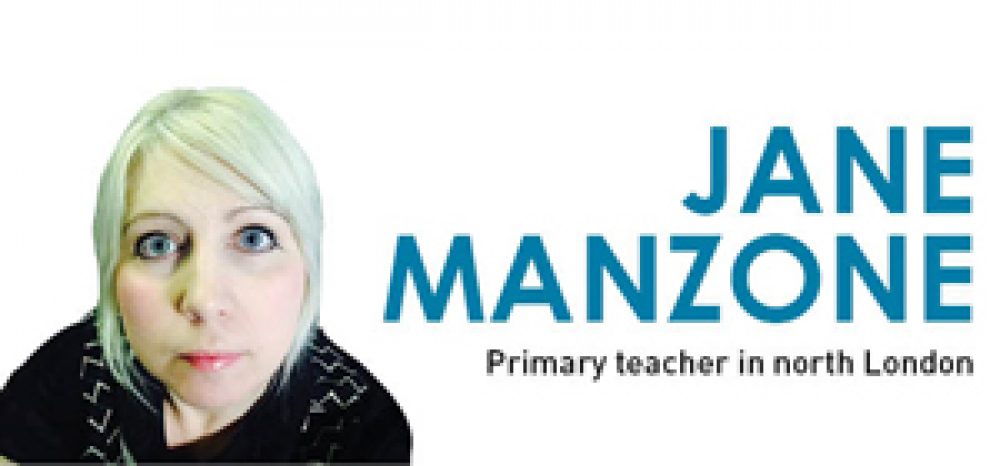Levels created a misleading set of criteria from which teachers taught in limiting ways. But people were too optimistic as a landscape with “standards” looks anything but rosy
These are the worst times I have known in education. Too many people stirring the education pot have made for a turbulent few years, full of disorientation and chaos. From the rubble has come a response: a level of control over teachers that I have not seen before. Class teachers are being stripped of any semblance of autonomy, despite what the government proclaims about freedom.
Conflicts of interests now challenge a teacher’s integrity: are children’s test results and happiness equally important? What happens when these things collide? When there are targets to meet and attainment “gaps” to close, we use funding where it makes that most impact on results. The test has become the thing, whether teachers like it or not.
Teachers are now crash test dummies; strapped in and repeatedly hurtling towards a brick wall, unable to make sensible choices about what will work best. They find themselves having to follow this new initiative, or that new policy, in a bid to reach the unattainable.
Transfer of reasonable ideas into schools today is almost impossible. Even a perfectly sensible idea can turn into a circus in a data driven education world.
Consider this fictional scenario: an Ofsted inspection says some children in a school are not challenged enough. In response, the senior leadership team decides the school is now a “growth mindset” one. On a rainy Wednesday at 5.30pm the staff are introduced (with the help of a “learning stratospheres” PowerPoint) a new initiative of “challenge menus”. Apathy and broken resistance means “the spice factor” is born to barely audible complaints from the overworked staff.
Teachers are now crash test dummies
The next week a humble class teacher, let’s call her Kerry-Anne, who has prepared her maths “challenge menus” (spending three hours on Sunday night and forgetting to wash her hair) against her better judgment, allows Lucy in her class to pick “vindaloo” equations instead of “korma” three-times table practice. It is an observation lesson; Kerry-Anne’s feedback includes the words “explanations were not clear enough and some children were confused and made no progress at all”. Like Dylan Wiliam’s ubiquitous “traffic lights”, now most often used as a token form of self-assessment in books when teachers are following a marking policy, growth mindset has become a thing devoid of meaning, dangling free from the original thread of rational thinking.
Good ideas are only good when the teacher using them has chosen to do so for the benefit of her students and not for the system. But that is not what teaching today is like. Kerry-Anne only sees a brick wall in front of her. Strapped into the education van, she prepares for the next inevitable air bag to smack her in the face.
A broad and balanced curriculum isn’t just a sensible idea, it is a child’s entitlement. Yet it is not possible in many schools and there are no ramifications for not following it, especially now that every school is to become an academy and doesn’t have to follow the curriculum.
In that world, little Esther might not know what a primary colour is, and hasn’t picked up a paintbrush since year 3, but the new expectations in maths and English demand a wider range of specific, non-negotiable skills and knowledge than ever before. This makes Esther’s teacher hold her head in her hands and put to one side that mock Bayeux tapestry she wanted to make with her class. She writes lesson plans for extra spelling and grammar lessons. After all, her class must know a fronted adverbial from a modal verb and be able to spell “sacrifice” and “accommodate”.
I stayed with a good friend of mine last weekend. I saw in her living room a file she had been given at an assessment course.
She flinched as I picked it up. Out flew 30 copies of the new standards for the end of key stage 1. “The children have to meet all of them” she sighed. “I am not sure why a six-year-old has to be able to write using suffixes like ‘ful’ and ‘ly’, are you?”
As I survey the whirling blue mist of the post-level landscape, a crash scene emerges. We are in David Cronenberg territory. I see some blurry figures capitalising on the chaos but it isn’t any teacher that I know.







Someone is always there ready to make money from a new initiative. The next best thing is created from the ether of an idea and clones of itself emerge to challenge its place in the market. The choice is which one to go for, but to go for one is a must. Heads conferences with attendant consultants and funding agencies.-.power points of might demonstrate how the end might look if one ignores the latest fad.
“How high did your fleas jump today?” asked the head of an outstanding community school. His staff laughed nervously. In all my many years of teaching I can count on one hand the number of initiatives that have had a real and sustainable impact. The rest is like broken wind in a small room, ignore it for long enough and it will go away. But before it does it must be endured.
all too true … thanks for saying it in such a succinct way 🙂